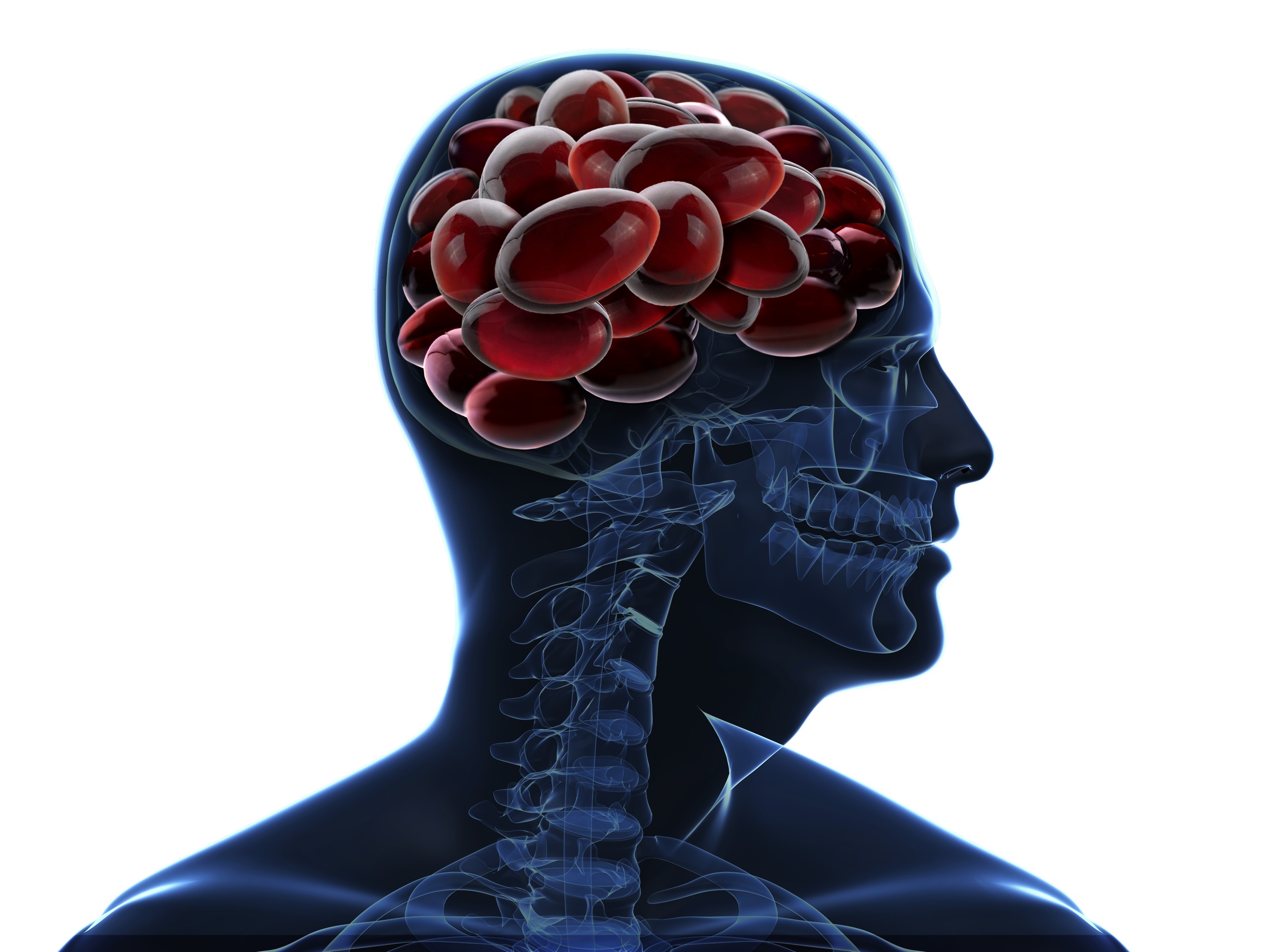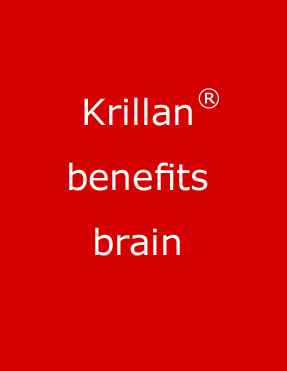
Omega-3 phospholipids in the brain
Omega-3 is a critical part of our central nervous system
Only adipose tissue contains more fatty acids than the body’s central nervous system, including the brain. The omega-3 fatty acid, DHA, which is the most common fatty acid in the human brain, constitutes 15% of all brain fatty acids.
Omega-3 phospholipids play key roles in the structure and function of brain cell membranes and cell signaling. An omega-3 deficiency in brain tissue can result in functional disturbances and delayed development.

Omega-3 phospholipids have been shown to be preferentially transported to brain tissue
Omega-3 is primarily obtained from diet. Particularly before birth and during early childhood – periods of rapid brain growth and development – the limited intra-cellular synthesis of omega-3 in the brain has been shown to be inadequate for sustaining brain health.
Throughout life, the amount of omega-3 found in the brain is influenced by dietary intake of fatty acids and by the brain’s developmental stage. Passage of fatty acids into the brain is restricted; only omega-3 and essential fatty acids cross the blood-brain barrier. While human milk contains relatively small amounts of omega-3, most is in the phospholipid form.
Omega-3 phospholipids have been shown to be preferentially transported to brain tissue, compared with omega-3 delivered as triglycerides. The proposed mechanism is the presence of carriers which preferentially bind to and carry omega-3 into the brain; thus, Omega-3 phospholipids have been suggested as a superior source of omega-3 for brain tissue.

Omega-3 phospholipids and maintaining brain health
Omega-3 intake is reported to be valuable in maintaining memory and cognitive functions, which can become impaired in adults who have attained middle age. Cognitive decline is common among the elderly; although the presence and extent of any age-related decline is specific to the individual. Sufficiently high intake of omega-3 has been found to be associated with prevention, delay, or amelioration of cognitive impairment among the elderly. An association has been suggested between intake of omega-3 and the amount of omega-3 in the brain, and the risk of developing dementia. Patients with dementia have shown decreased levels of DHA in brain tissue. Adequate consumption of omega-3 is recommended to maintain memory performance and reduce the risk of developing severe dementia.


Mechanisms of omega-3 phospholipids affecting brain health
Omega-3 phospholipids have been shown to be more efficiently taken up by brain tissue, compared with omega-3 triglycerides; observations also suggest greater availability and more beneficial effects on brain functions when omega-3 phospholipids are provided.
Another beneficial effect of omega-3 on brain tissue is altered production of mediators of inflammatory processes, as follows: Increased incorporation of omega-3 into cell membranes results in increased production of omega-3-derived inflammatory mediators.
Elevated levels of inflammatory mediators derived from omega-3 result in weaker inflammatory reactions, which cause less injury to surrounding tissue.
Omega-3 appears to impart beneficial effects regarding various brain cell functions and cell signaling when incorporated into membranes.

Omega-3 phospholipids in early brain development
The developing brain undergoes particularly rapid growth during the third trimester of fetal life and the first two years of childhood.An association between infants’ omega-3 status and developmental outcome has been observed. Mothers’ milk provides most of its omega-3 content in phospholipid form, suggesting that omega-3 phospholipids are the preferred form for delivery of omega-3 to the human brain.
Insufficiency of certain nutrients can disrupt the complex process of brain development. Omega-3 is an important nutrient for optimal growth and development of the human brain, and an adequate supply is needed from early fetal life.
Omega-3 phospholipids and ADHD
Attention Deficit Hyperactivity Disorder (ADHD) is claimed to be the most common neurological disorder among children, affecting 8% to 12% of children worldwide. ADHD, classified as a mental disorder, impacts behavior; symptoms are inattention and hyperactivity. Both environmental and genetic factors can contribute to the development of ADHD. Omega-3 is a dietary factor suggested to ameliorate ADHD.
Low levels of omega-3 in blood and an altered pattern of omega-3 in the brain are observed in children and adolescents with ADHD. Dietary intervention that includes high doses of omega-3 has been reported to be nearly as effective as therapy for treatment of ADHD.

Krillan™ Krill Oil providing omega-3 phospholipids to the brain
Krillan™ Krill Oil is a rich source of omega-3 phospholipids, mainly phosphatidylcholine. Omega-3 biovailability increases when delivered as omega-3 phospholipids, compared with other sources, as a result of better fatty acid absorption and distribution to organs and tissues.

